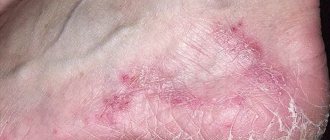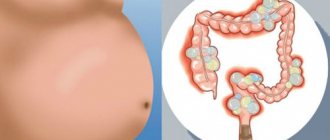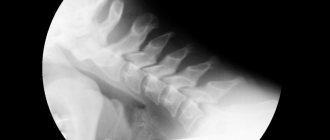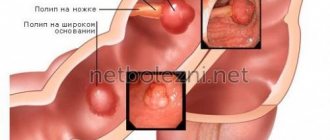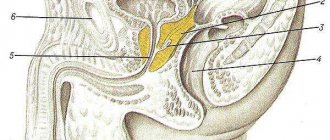Bad breath, causes and treatment of this phenomenon bother many adults. This symptom prevents you from freely communicating with others at home, at work, and in public places. It always suggests that there are some health problems. In fact, this symptom is characteristic of many diseases of internal systems , but the causes of its appearance are not always dangerous.
Causes of bad breath
The main cause of bad breath is the excessive proliferation of pathogenic bacteria in the oral cavity, which during their life processes release volatile gases with a characteristic unpleasant odor: hydrogen sulfide and methyl mercaptan. Plaque on the tongue, pieces of food stuck between teeth or in gum pockets are a consequence of poor hygiene and a breeding ground for microorganisms that spread a foul odor. In most cases, treatment by a dentist helps get rid of halitosis. Other causes of bad breath include:
- food with a persistent pungent odor (garlic, onions, some spices). During the digestion of garlic, volatile sulfur compounds are formed, which enter the blood and are carried throughout the body, ending up in the lungs, larynx and mouth. They become the cause of unpleasant “garlic breath”, which disappears completely only after 72 hours;
- smoking. Tobacco smoke itself has a persistent foul odor; in addition, it can provoke gum disease, which is a common cause of halitosis;
- dry mouth. Saliva is necessary for natural cleansing of the oral cavity. It washes away food particles, preventing them from rotting, and contains antimicrobial substances that inhibit the growth of pathogenic microflora. With xerostomia (a pathological condition characterized by decreased secretion or absence of saliva), the number of bacteria in the mouth increases significantly, which contributes to the development of caries and halitosis. Xerostomia can be caused by taking certain medications (hypotensive, chemotherapy, antiparkinsonian, etc.), as well as uncontrolled
How to treat diabetes? diabetes. Saliva production also naturally decreases during sleep. This leads to an increase in the number of bacteria in the mouth (mainly on the surface and back of the tongue) and the appearance of stale breath in the morning. Drinking alcoholic beverages, coffee and smoking are other causes of bad breath due to dry oral mucosa; - diseases of the throat and nasopharynx. Bad breath can be caused by purulent plugs in the tonsils with tonsillitis, bacterial or viral infections of the paranasal sinuses (
Why is sinusitis dangerous? sinusitis), chronic bronchitis and other diseases of the upper or lower respiratory system; - diseases of the digestive system (
What is gastritis and how to treat it? gastritis, reflux), liver, kidneys, diabetes; - fasting and low carbohydrate diets. They lead to the fact that the body, experiencing a lack of energy obtained from food, begins to burn accumulated fat reserves. When fats are broken down, ketone bodies are formed. These are by-products of fat metabolism, which are excreted from the body by the lungs and have an acetone odor.
What causes sour breath?
The most common cause of sour breath is acid reflux. This is a pathology of the gastrointestinal tract, accompanied by heartburn, pain in the lower abdomen, and less commonly, belching. Symptoms of acid reflux occurring more than twice a week are already characterized as gastroesophageal reflux disease (GERD) and must be treated. The main cause of reflux is a weakening of the lower esophageal sphincter, a valve-like muscle that forms a barrier between the esophagus and the stomach. Normally, the sphincter opens when swallowing food and then closes tightly. With reflux, it remains open, allowing gastric juice mixed with bile and pieces of undigested food to flow back into the esophagus. This causes heartburn, a bitter or sour taste in the mouth, and bad breath that gets worse with belching.
In some cases, a person with GERD may feel their own bad breath without even opening their mouth. The sharp sulfuric acid smell of bile from the esophagus can even be heard through the nose. Less commonly, sour breath can be a symptom of peptic ulcer of the stomach and duodenum, accompanied by increased acidity of gastric juice.
Bad breath due to gastrointestinal diseases
Bad breath in some cases can be a consequence of gastroenterological diseases. Most often, halitosis is provoked by gastroesophageal reflux (a pathological condition in which gastric contents enter the esophagus), as well as infection of the mucous membrane of the stomach and duodenum by the bacterium Helicobacter pylori. It can cause gastritis, ulcers and stomach cancer. In addition, the bacterium may also be present on the oral mucosa, which is also a cause of halitosis. There may not be any signs of gastrointestinal diseases.
The study, published in the journal Medical Principles and Practice, involved 18 patients with halitosis and confirmed H. pylori infection. 4–6 weeks after a course of antibacterial treatment, bad breath disappeared in 16 people. This study confirmed the relationship between Helicobacter pylori and halitosis.
Much less commonly, halitosis occurs due to intestinal obstruction. This is a health-threatening condition where food is unable to move through the digestive tract due to a blockage in the small or large intestine. Symptoms of pathology:
How to treat intestinal dysbiosis? bloating, constipation, abdominal cramps, nausea, vomiting and fecal odor on the breath. If you have these symptoms, you should immediately consult a doctor.
For example…
- Gastritis, ulcers, pancreatitis and other gastrointestinal diseases (note: hydrogen sulfide smell).
- Chronic tonsillitis, tonsillitis or sinusitis.
- Pneumonia and bronchitis.
- Kidney diseases (note - the smell of acetone).
- Diabetes mellitus (note - the smell of acetone).
- Gallbladder disease (bitter, unpleasant odor).
- Liver diseases (in this case, a specific fecal or fishy odor is noted).
- Tumor of the esophagus (note - smell of rot/decomposition).
- Active tuberculosis (note: smell of pus).
- Kidney failure (note: “fishy” smell).
- Xerostomia caused by taking medications or prolonged mouth breathing (putrid odor).
It is also worth noting pseudohalitosis . This term is used when talking about a condition when a person with fresh breath “imagines” an unpleasant odor in his mouth.
How to remove bad breath from reflux?
Medication treatment, as well as making some changes to your usual lifestyle, can help prevent sour breath from developing with GERD. First of all, you need to stop smoking. Nicotine causes the sphincter muscles in the lower esophagus to weaken, which is the main cause of stomach acid refluxing into the esophagus. In addition, smoking itself causes bad breath and increases the risk of developing cancers of the throat, esophagus, stomach, pancreas, liver and colon. How to prevent bad breath from reflux:
- do not lie down immediately after eating - in a horizontal position, gastric juice flows into the esophagus, and the longer it stays there, the more irritated its mucous membrane is. You must wait at least 2–3 hours;
- Place a wedge-shaped pillow under your head to elevate your upper body while you sleep. This way the esophagus will be located above the stomach and gastric juice will not flow back and irritate its walls;
- eat small meals throughout the day;
- Maintain a normal weight to avoid pressure on the stomach. Obesity increases the risk of hiatal hernia, which can worsen GERD symptoms;
- Chew gum to freshen your breath and reduce the risk of heartburn.
Changing your diet can also relieve symptoms of GERD and prevent bad breath. Many foods can reduce the tone of the sphincter muscles of the lower esophagus and increase the acidity of gastric juice, thereby exacerbating the problem. Foods and drinks to avoid if you have GERD:
- alcohol;
- coffee and tea containing caffeine;
- onion and garlic;
- citrus fruits and juices from them;
- carbonated drinks;
- tomato juice;
- mint;
- spicy food;
- chocolate;
- fatty and fried foods.
Include more fiber-rich foods in your diet. These are pears, apples, avocados, artichokes, lentils, beans, broccoli, bananas, carrots and beets. They help improve digestion and avoid halitosis. Consume natural sourdough yogurt without fillers and milk, and drink enough water. Drug therapy for GERD involves the use of several types of drugs that reduce the production of hydrochloric acid or neutralize it:
- histamine blockers;
- proton pump inhibitors;
- calcium carbonate, aluminum or magnesium hydroxide.
Only a doctor can prescribe medications. Self-medication can be harmful to health.
How to eliminate unpleasant odor from the stomach?
The first step in dealing with bad odor caused by stomach problems should be to determine its true cause. To do this, you need to make an appointment with a gastroenterologist, since attempts at self-medication can harm your health. After examining the gastrointestinal tract, the doctor will prescribe a treatment regimen that will help solve the problem of bad breath. Taking probiotics (beneficial microbial cultures that improve the functioning of the digestive system) also helps normalize the acid balance of the stomach and reduce the number of pathogenic bacteria.
Checking your breathing
You need to bring your palm to your face in such a way as to simultaneously cover your mouth and nose. After this, exhale deeply through your mouth. Got an unpleasant odor? If you can’t clearly identify what and how it smells, buy a disposable mask at the pharmacy and breathe into it for a minute. The smell under the mask will tell you about the smell that others smell from you during communication. In the modern world, specialized breath indicators are produced that can determine the level of freshness on a five-point scale. In medical institutions they use a more complex device - a gas analyzer. With its help, you can determine the chemical composition of the air that is released when you exhale and determine the causes of the bad odor.
How to remove the smell of acetone from your mouth?
The smell of acetone on the breath usually appears when the body switches to the mode of burning accumulated fat due to the lack of carbohydrates from food to support all vital processes. This is a common side effect of low-carb or keto diets, but it is not harmful to your health. Breath with the smell of acetone or rotten apples disappears on its own a couple of weeks or a month after starting the diet, when the body fully adapts to the transition to a new source of energy.
In other cases, a sweetish fruity odor from the mouth may be a sign of an acute complication of type 1 diabetes - ketoacidosis. This dangerous health condition is caused by high levels of ketone bodies in the blood due to a lack of insulin. Symptoms of ketoacidosis:
- strong thirst;
- frequent urination;
- labored breathing;
- stomach ache;
Nausea and vomiting nausea, vomiting;- confusion.
If these signs are present, you should urgently call an ambulance, since without timely treatment the patient may fall into a diabetic coma and die. Regular monitoring of blood sugar levels will help prevent the development of ketoacidosis in the future.
The following tips will help minimize keto breath while dieting:
- increase your water consumption. Ketones are excreted not only by the lungs, but also in the urine. Dehydration increases their concentration in the body and increases the unpleasant odor;
- eat less protein. When it breaks down, ammonia compounds are formed - another metabolic byproduct with a strong, unpleasant odor, which is excreted through the lungs and urine;
- Maintain oral hygiene: brush your teeth twice a day, use dental floss and mouthwash;
- Sugar-free mints or chewing gum will help freshen breath and increase the production of saliva, which has an antimicrobial effect and neutralizes bad odors;
- increase your daily carbohydrate intake.
Diagnostics
It is difficult for a person to recognize the smell of ammonia himself, and people around him are not always ready to tell the sufferer about it to his face.
The following activities are carried out at home:
- a clean cotton pad or napkin is placed under the tongue; they take it out after a couple of seconds and smell it; as a rule, you don’t need to sniff the smell of ammonia - it is felt immediately;
- lick the spoon, then proceed as in point 1;
- floss and toothpick will also transmit a strong odor.
How to prevent crown odor
If a person does not trust his own nose, then there are diagnostics at the dentist. In this case, special equipment is used.
Pharmacies sell modern small devices that detect the level of hydrogen sulfide in the body.
What to do if your breath stinks?
The fight against bad breath should begin with a visit to the dentist, since most often halitosis is a consequence of poor oral hygiene and the resulting diseases of the gums and teeth. If the doctor does not find any problems, then the cause probably lies in gastrointestinal diseases, and you need to visit
What does a pediatric gastroenterologist treat? gastroenterologist. Following these recommendations will help get rid of halitosis:
- Brush your teeth thoroughly at least twice a day (especially after meals), using a toothpaste containing fluoride, as it helps strengthen the enamel. Using a toothpaste or mouthwash with antibacterial ingredients kills bacteria in the mouth that causes bad odor;
- floss at least once a day to remove food particles stuck between your teeth;
- clean the surface of your tongue daily with a special scraper or toothbrush to remove plaque, which is a breeding ground for pathogenic bacteria;
- Clean your removable dentures regularly (at least once a day or as directed by your dentist);
- avoid dry mouth - drink more clean water, chew sugar-free gum to stimulate saliva production;
- Avoid consuming garlic, onions, hot spices, alcohol and coffee. Limit your sugar intake - it promotes the growth of microbes, which turn it into acid, which destroys tooth enamel;
- change your toothbrush every three months;
- Get a routine check-up with your dentist every six months.
Bad breath - folk remedies will help
Simple products that can be found in every kitchen will also help get rid of bad breath. The list of the most popular and effective home remedies for halitosis includes:
- parsley. Due to the high chlorophyll content and the presence of essential oils, which give it a fresh aroma, this plant has a good deodorizing effect. Parsley effectively fights volatile sulfur compounds. If you chew it after eating onions or garlic, the unpleasant odor will disappear or noticeably weaken;
- pineapple juice, or better yet, a piece of fresh fruit. It contains the enzyme bromelain, which breaks down bacterial plaque on teeth. You need to chew a fresh pineapple for 1-2 minutes or drink a glass of juice (not nectar, as it contains a lot of sugar);
- yogurt. It contains beneficial lactobacilli that help restore intestinal microflora. According to the study, after six weeks of consuming yogurt, 80 percent of participants experienced a decrease in bad breath. It is recommended to consume 1 cup of low-fat yogurt without sugar or flavorings daily;
- milk drunk after eating garlic helps prevent the appearance of an unpleasant odor;
- fennel seeds (dill) or anise. These spices have been used as breath fresheners from ancient times to the present day. They have a pleasant sweet taste and contain aromatic oils that neutralize unpleasant odors;
- oranges. The sour taste of the fruit and its vitamin C content stimulate the secretion of saliva. It is enough to chew an orange slice after eating to prevent halitosis;
- Green tea has disinfectant and deodorizing properties that can temporarily freshen your breath. Peppermint has a similar effect, which is why a cup of green mint tea is an ideal mouth freshener;
- apples. According to the results of the study, some substances contained in the pulp of fruits can eliminate the unpleasant odor of garlic. They directly affect the very cause of its formation - sulfur compounds in the blood, and do not simply mask the odor.
In most cases, the causes of bad breath lie in the oral cavity. You can get rid of it through treatment at the dentist, correcting your diet, giving up bad habits and using folk remedies. If the tips listed in the article did not help eliminate halitosis, it is probably caused by a malfunction of the internal organs. In this case, you need to consult a doctor who will find out the cause and prescribe treatment.
Treatment of the problem at the dentist
Let us say right away: alas, it will not be possible to mask true halitosis with various types of means that are recommended in advertising (refreshing sprays, rinses, mints and chewing gum). You get the same unpleasant amber, but with a slight hint of menthol or mint. Special antibacterial rinses and traditional medicine - chamomile, oak bark, St. John's wort, cloves - have a temporary effect if the underlying cause is not eliminated. In addition, they cannot be used often, because there is a risk of disturbing the microflora of the oral cavity, when all the useful ones “die” along with the harmful bacteria.
Note that unpleasant breathing can develop in both adults and children. Childhood halitosis is most often associated with poor hygiene. One way or another, in dentistry, a patient of any age will not only be diagnosed with the chemical composition of exhaled air, but also, if the diagnosis is confirmed, they will be told how to get rid of it and prevent its development. The doctor will carefully examine the condition of the oral mucosa, periodontal disease, salivary ducts and, in fact, the teeth themselves.
So, let's look at what treatment methods will be used:
- Cleaning from plaque and stone is the very first thing to do when dealing with this problem. It is comprehensive hygiene that will allow you to remove deposits from the surface of the teeth, from under the gums, restore the condition of the mucous membranes and thereby gradually reduce the manifestation of an unpleasant odor,
- treatment of diseased teeth - removal of carious formations, filling. If the teeth are in a rotting state, then it is easier to remove them,
- restoration of gum condition - if there are deep periodontal pockets, then classical cleaning will not be enough. Here curettage of the gums is already carried out, during which the mucous membrane is peeled off from the surface of the tooth and the hard stone is removed from the roots,
- drug therapy can also be prescribed if there are any inflammatory processes in the oral cavity, for example, stomatitis, tongue diseases,
- replacement of old dentures, inside of which plaque may have accumulated (for example, if the structure is cracked). It is also worth updating them if they cause persistent inflammation of the gums or have led to the destruction of supporting teeth.
In general, if there is an unpleasant aroma, in most cases it is enough to implement the first two points, after which the patient needs to carefully maintain hygiene - clean after every meal, do not forget about morning and evening procedures.


